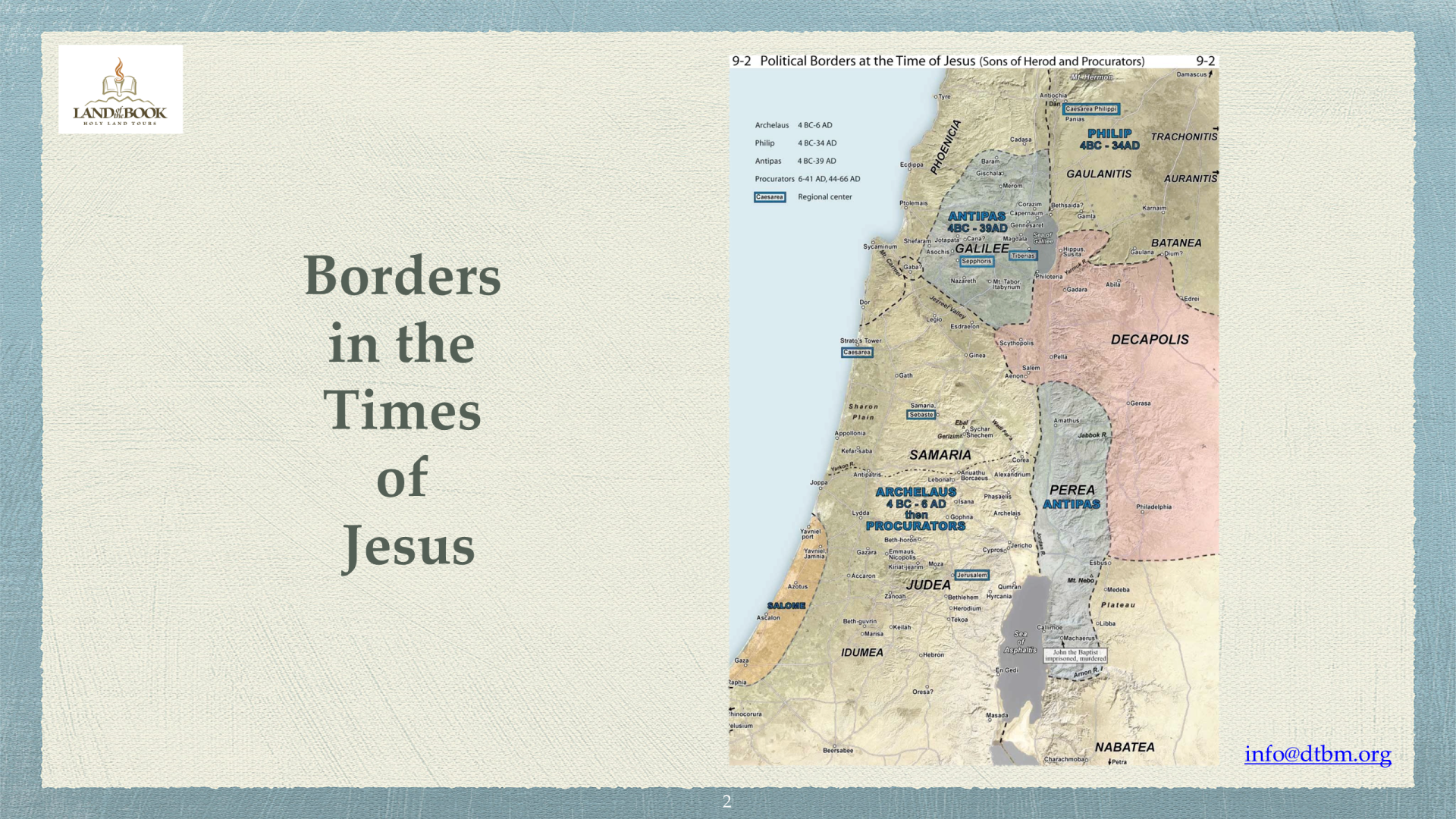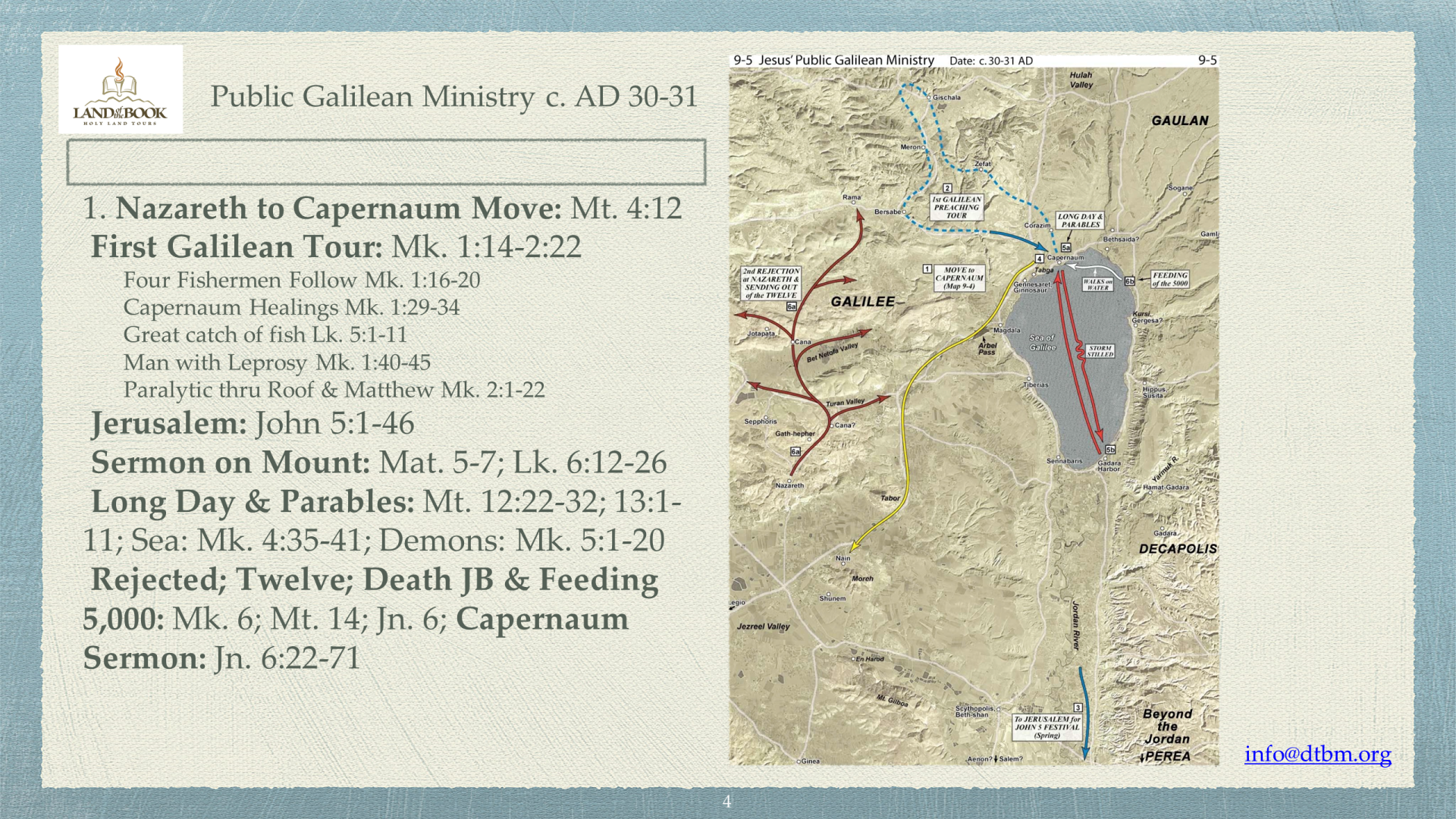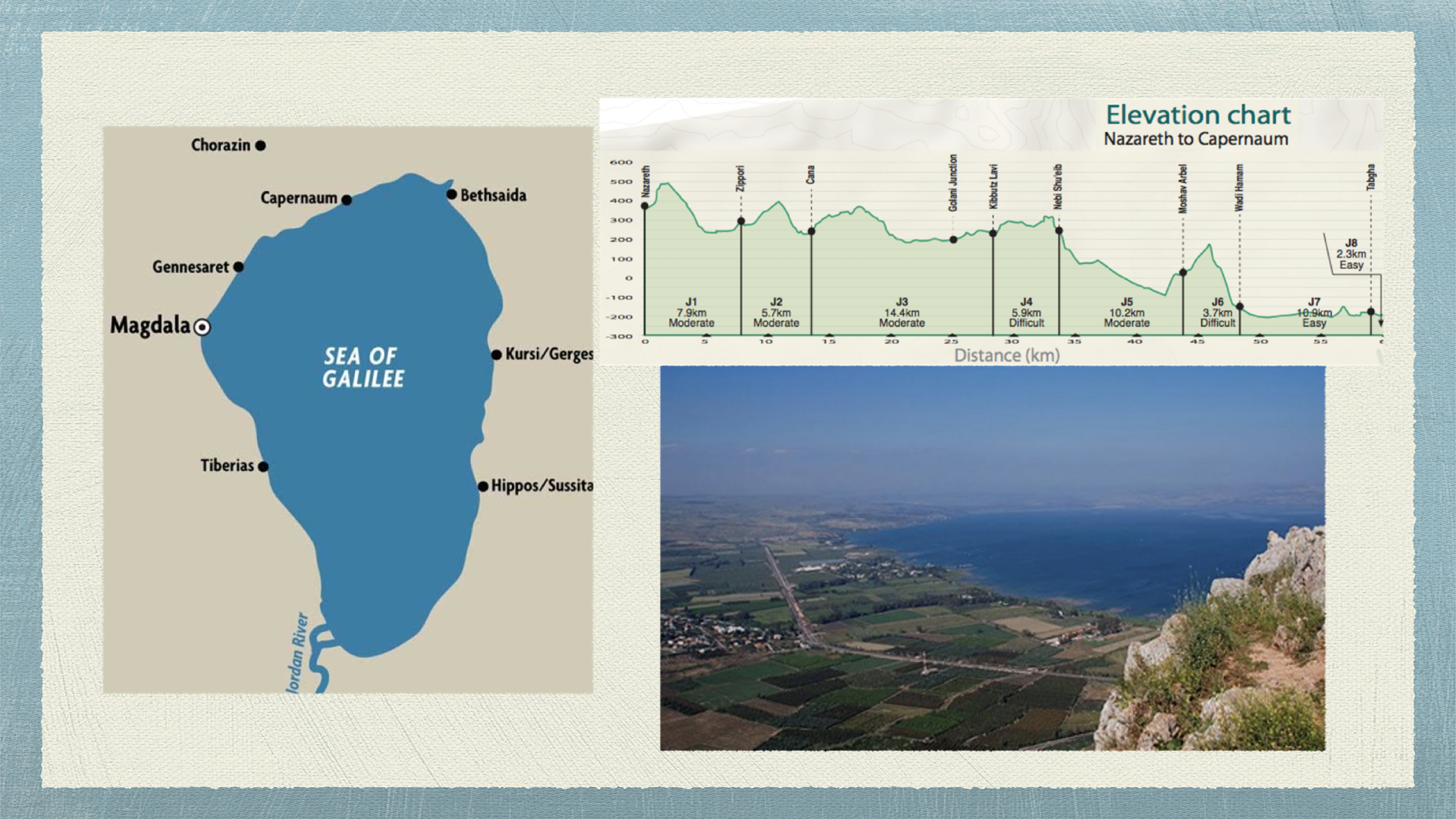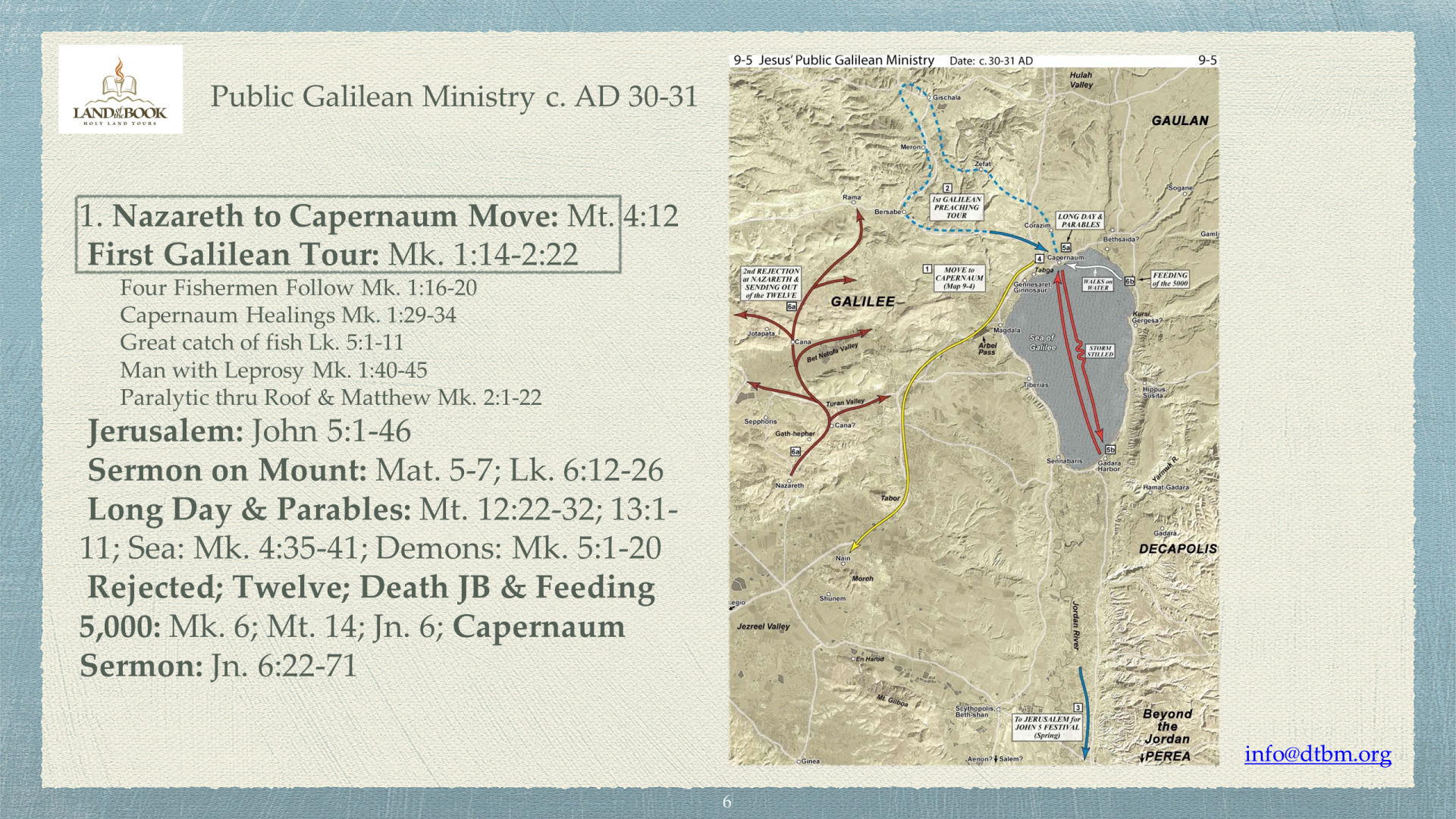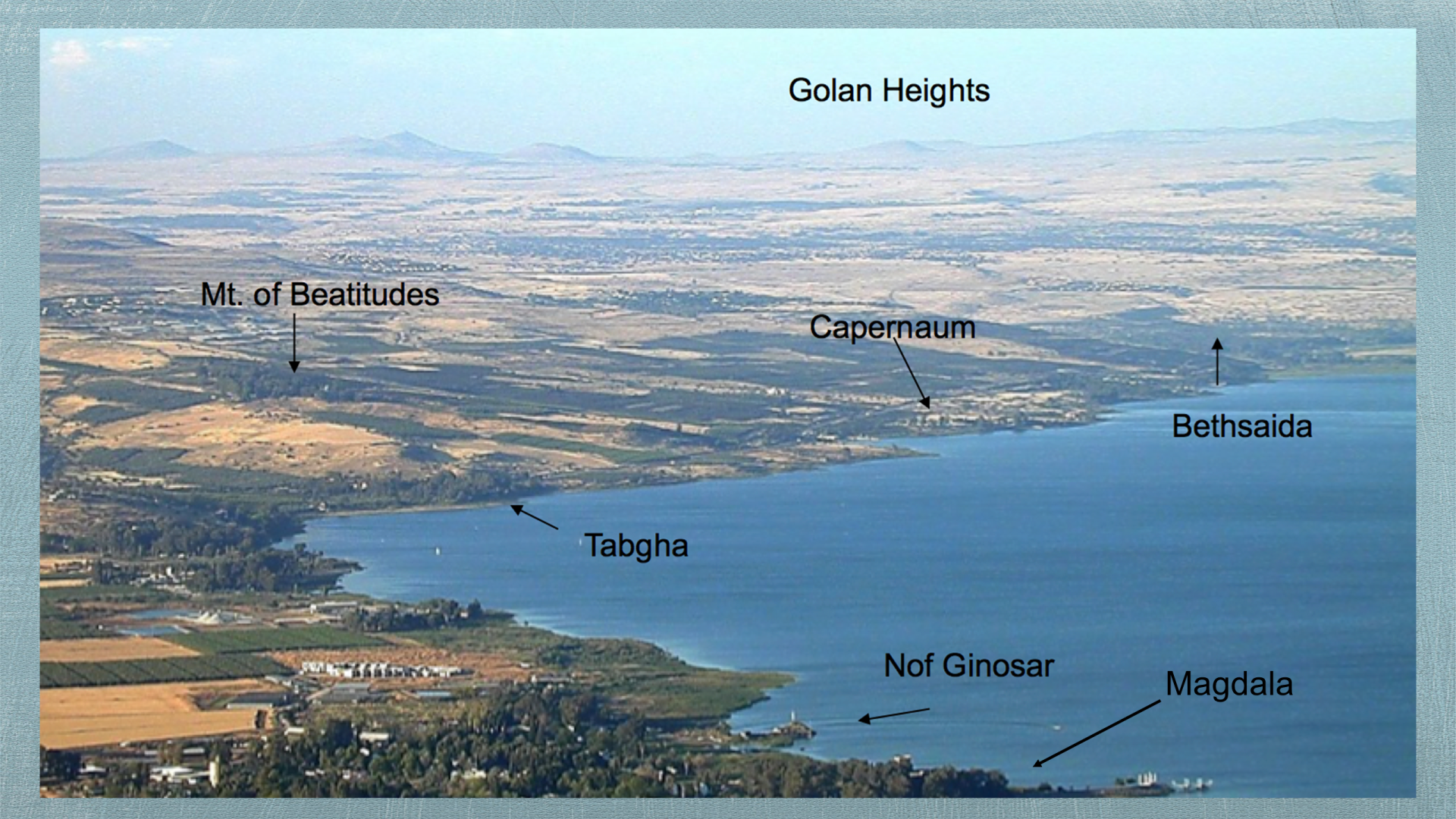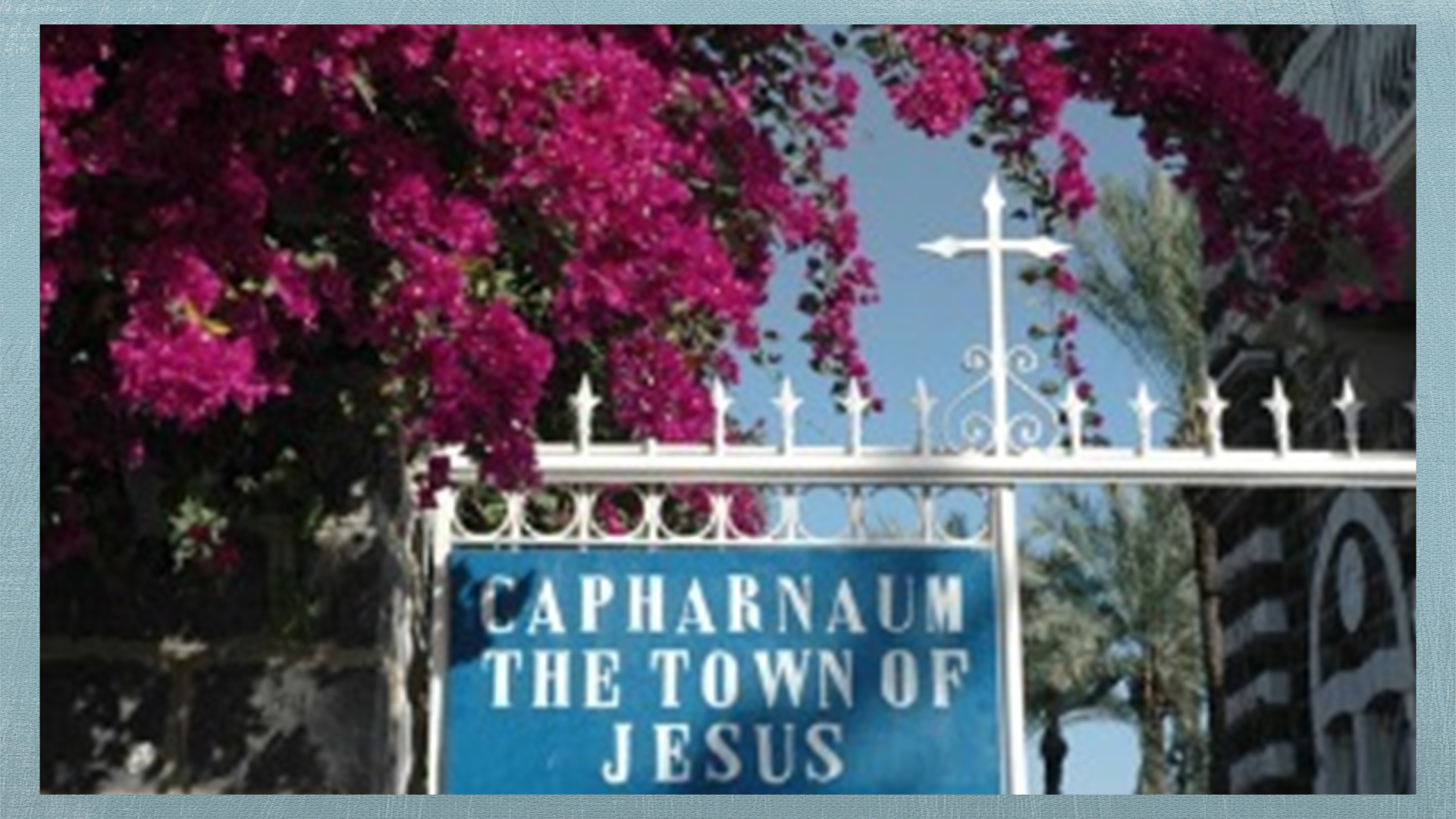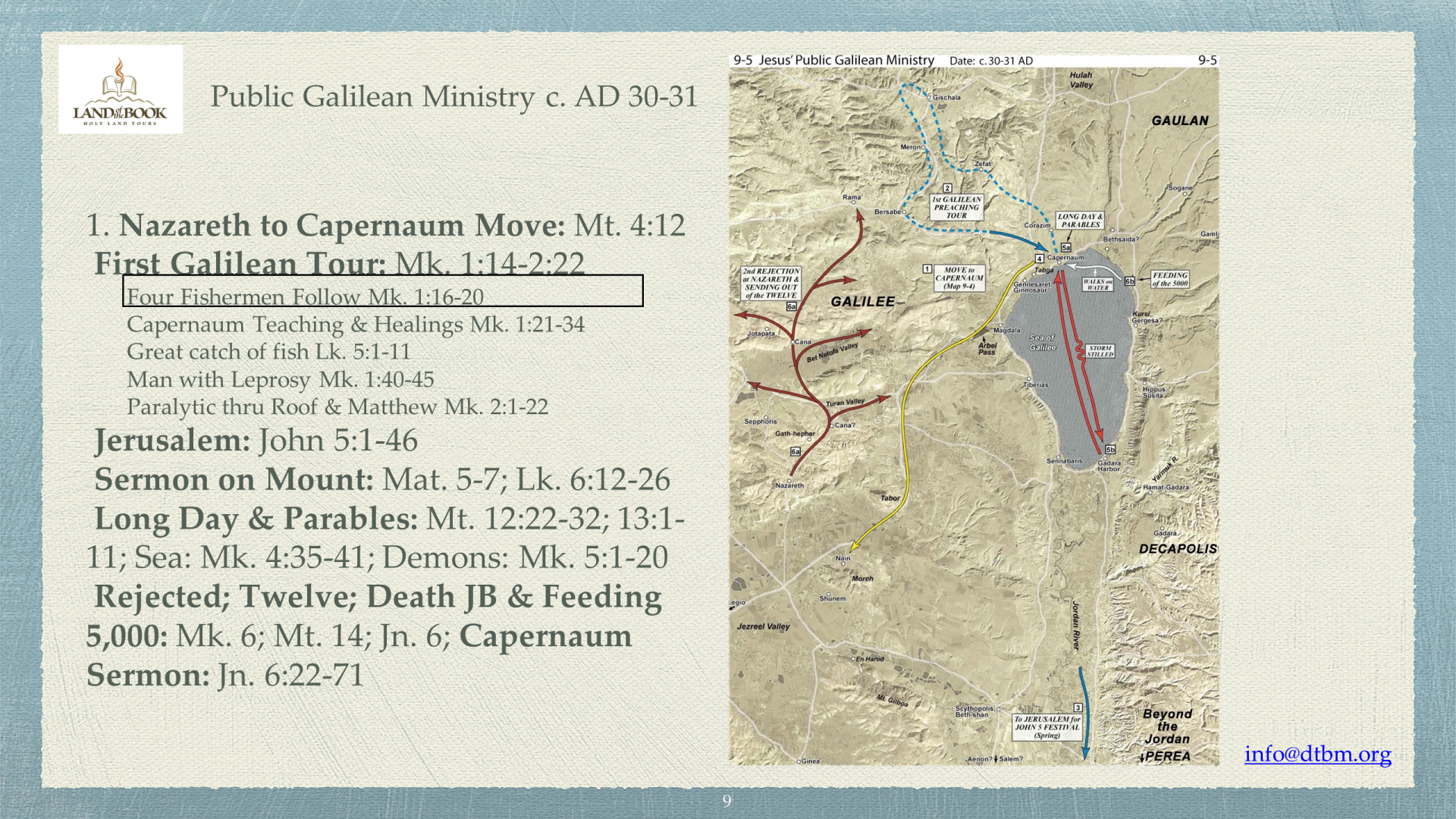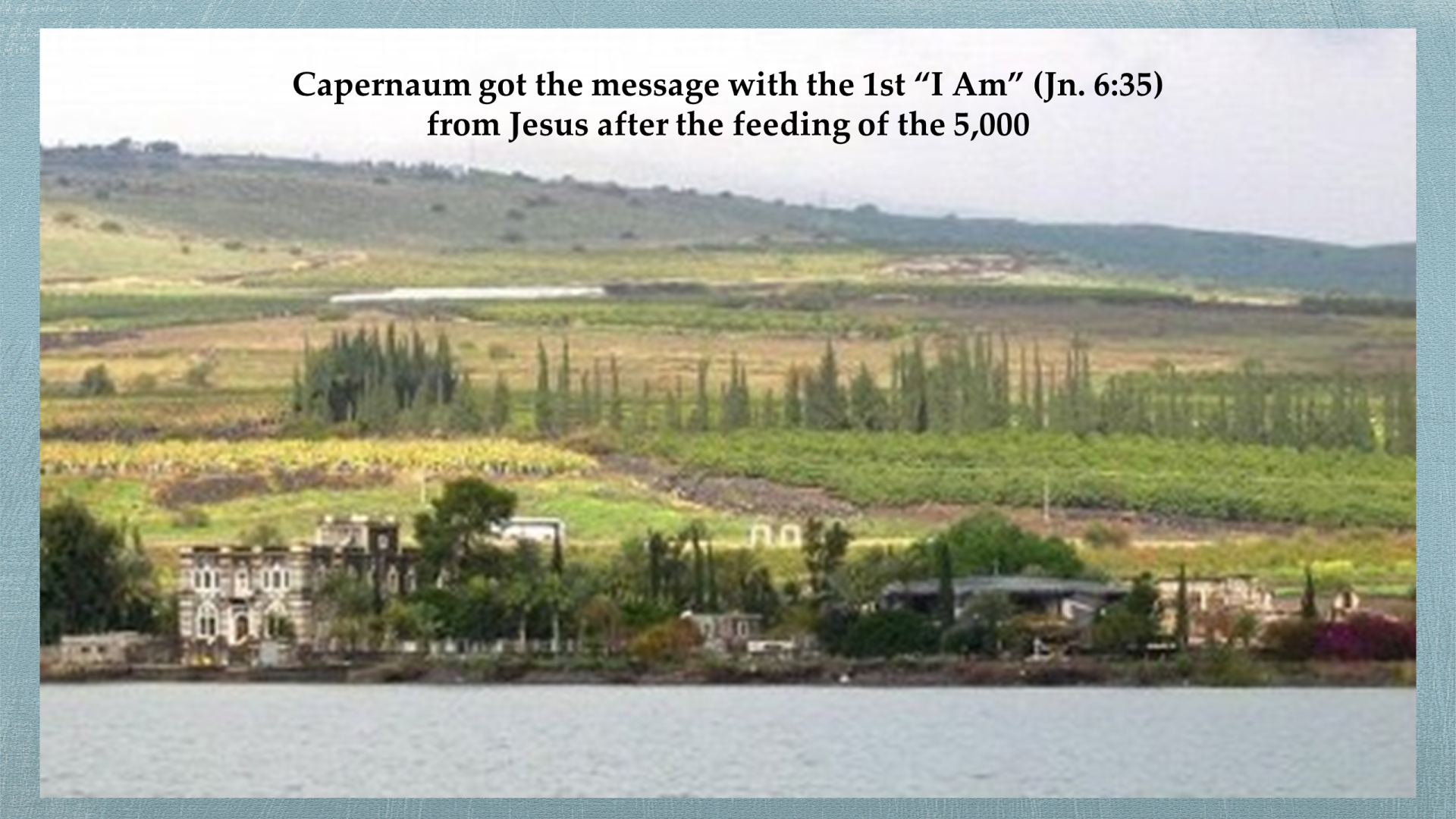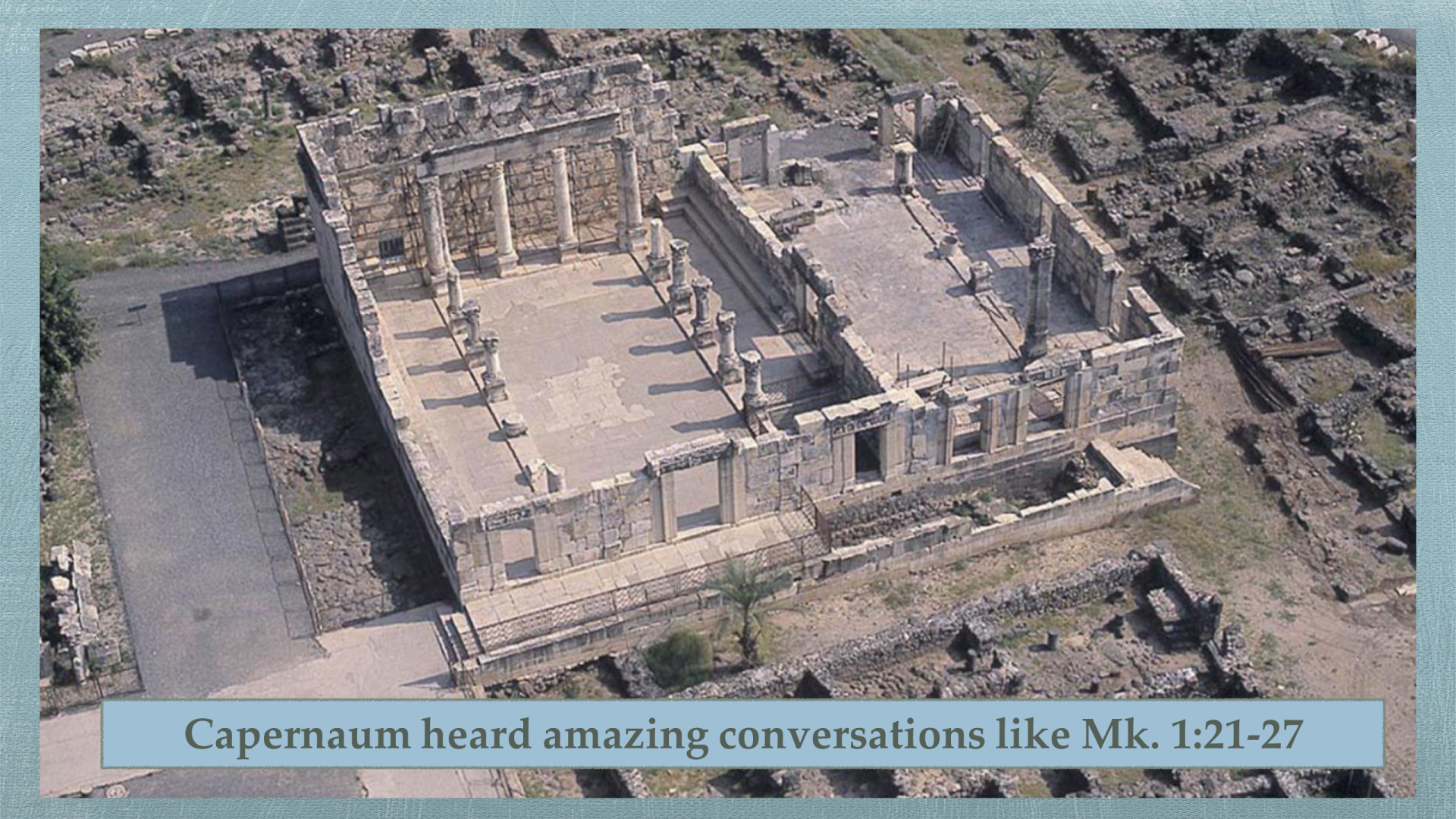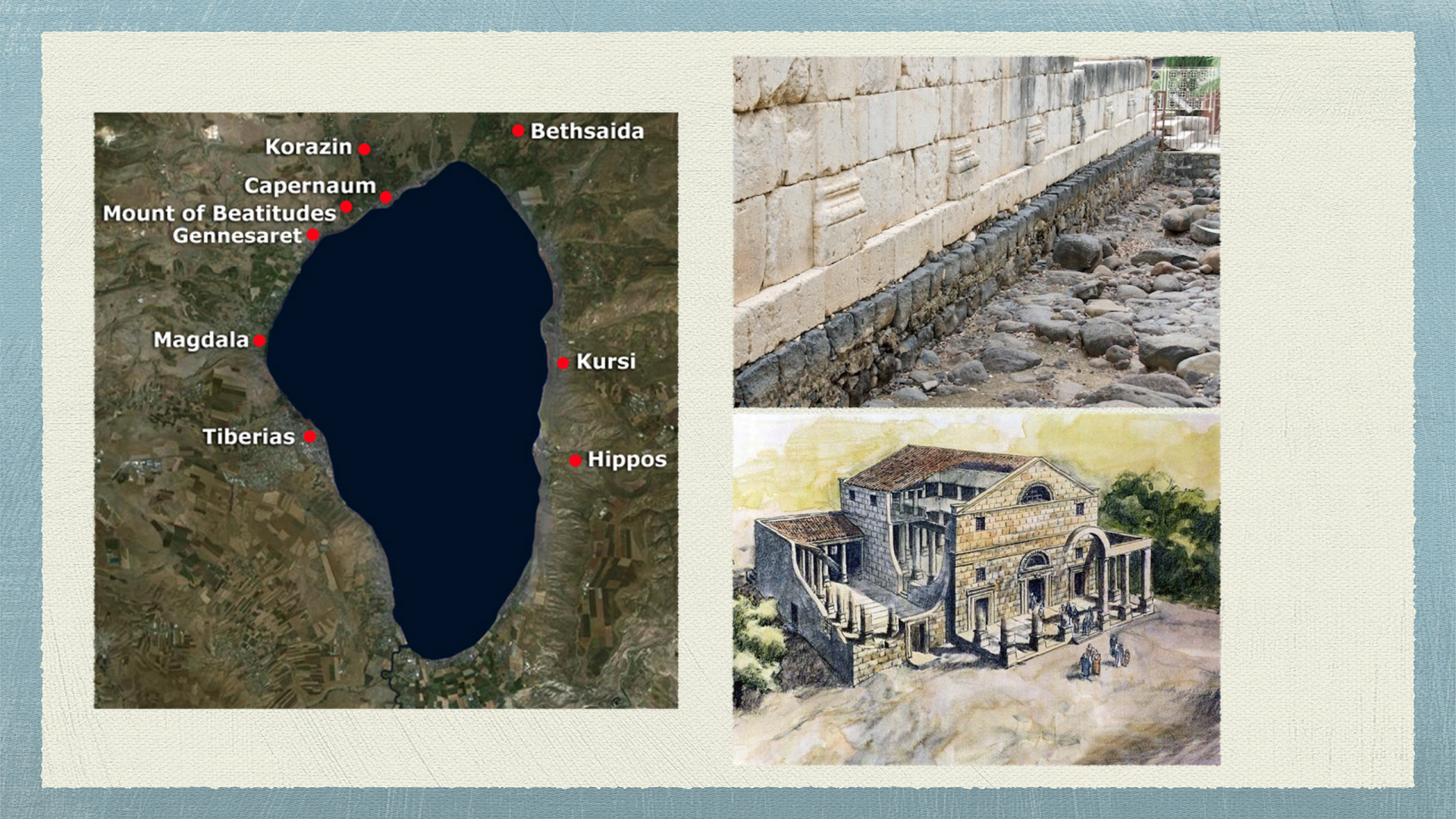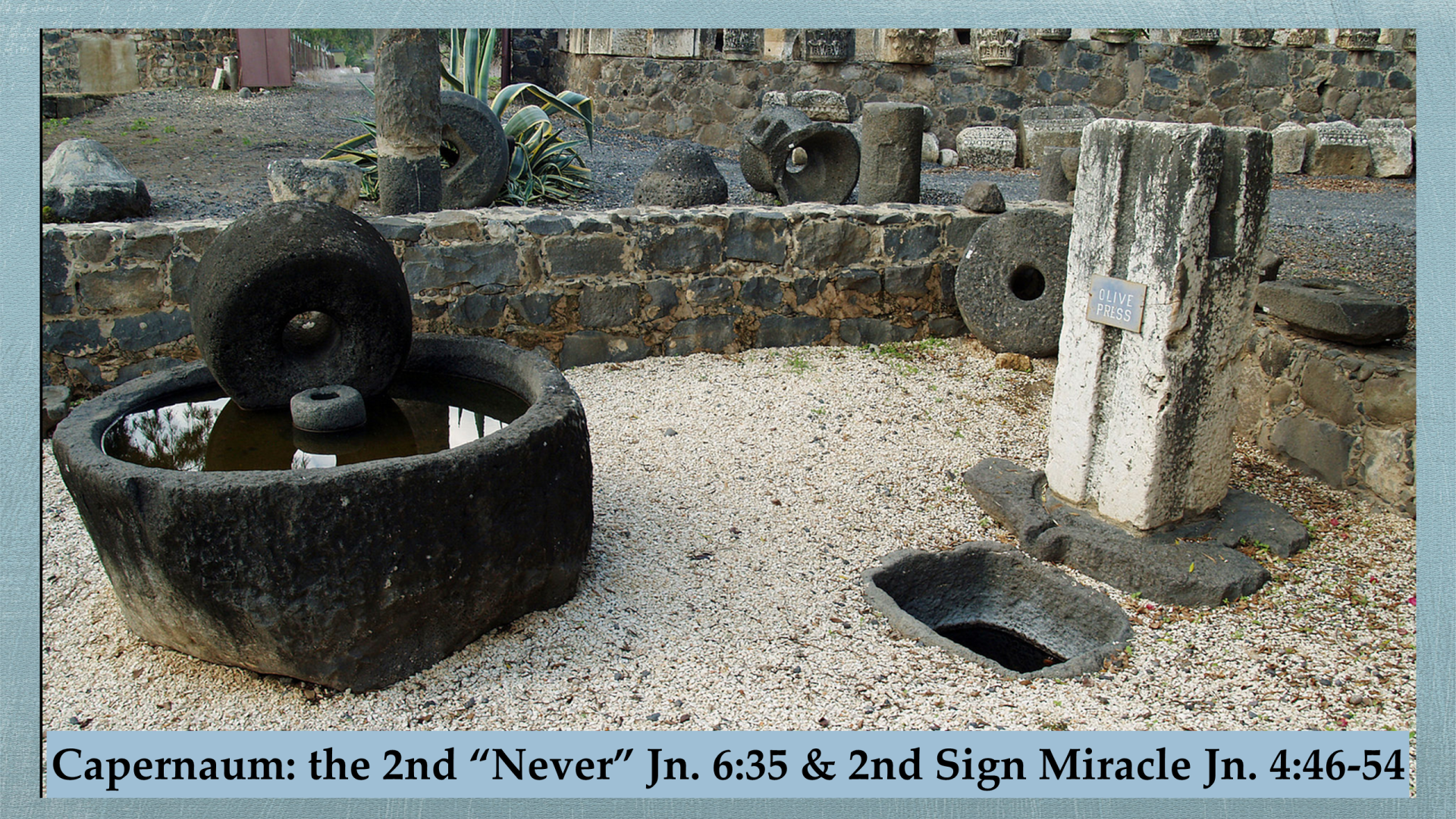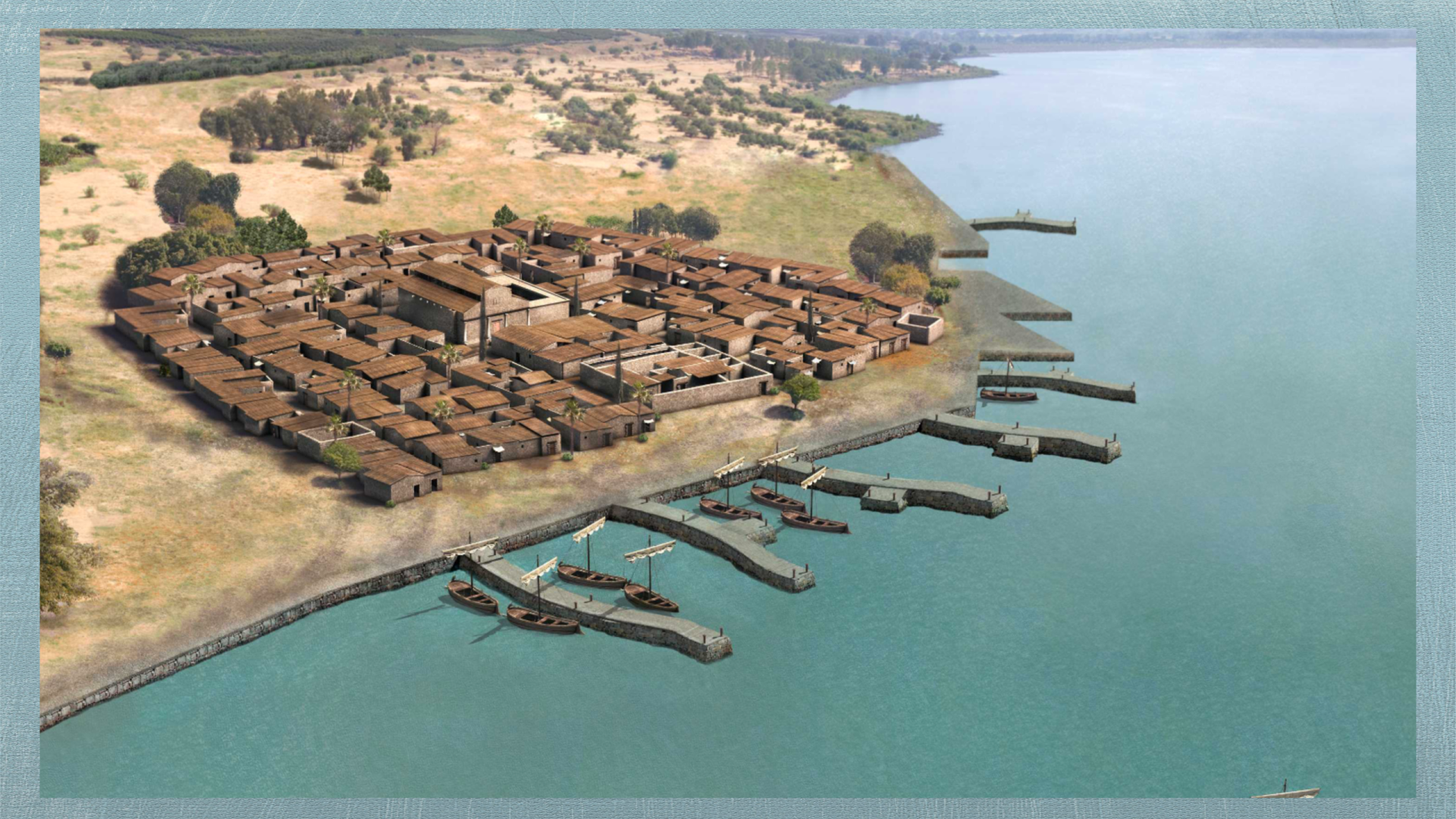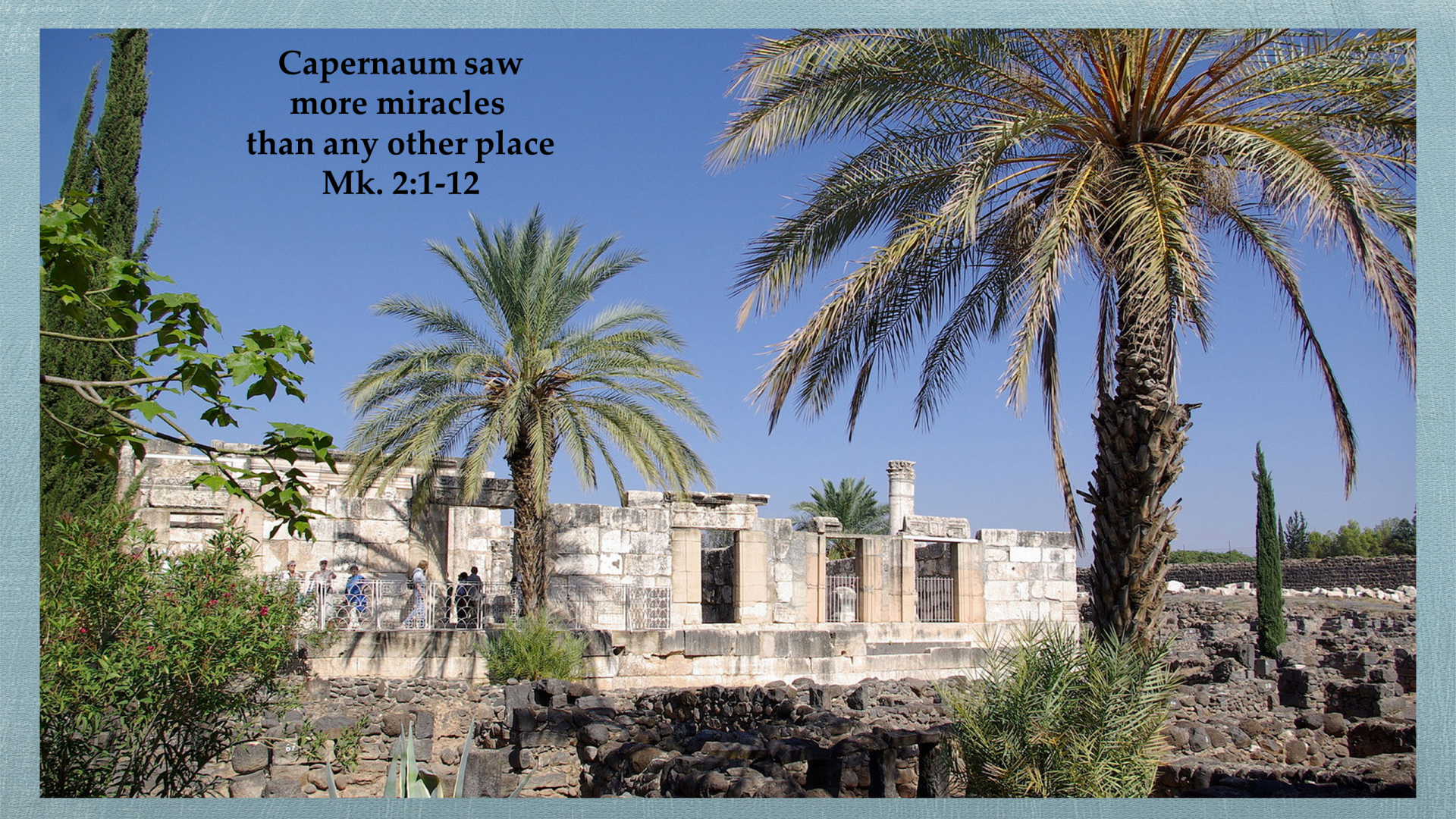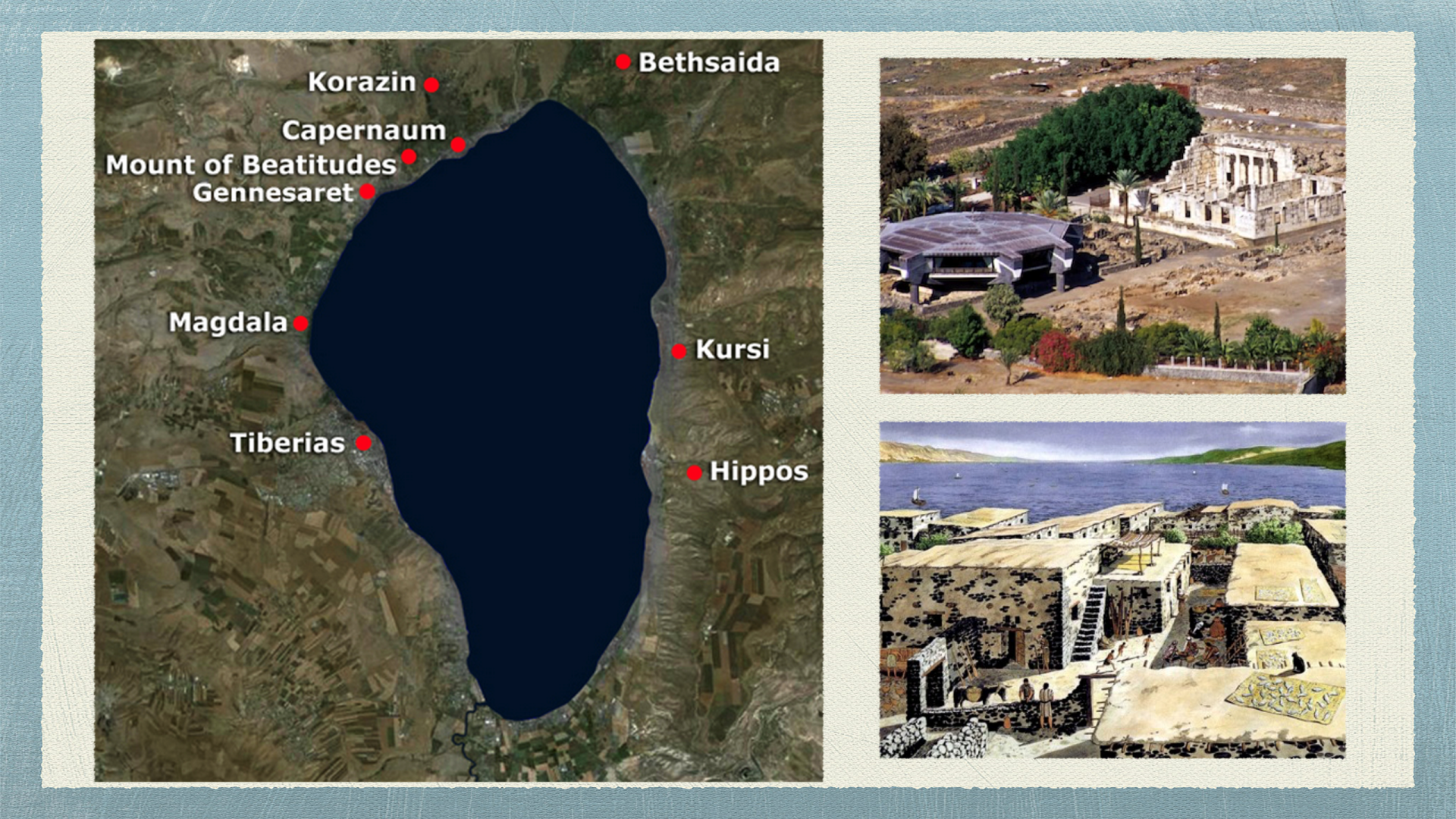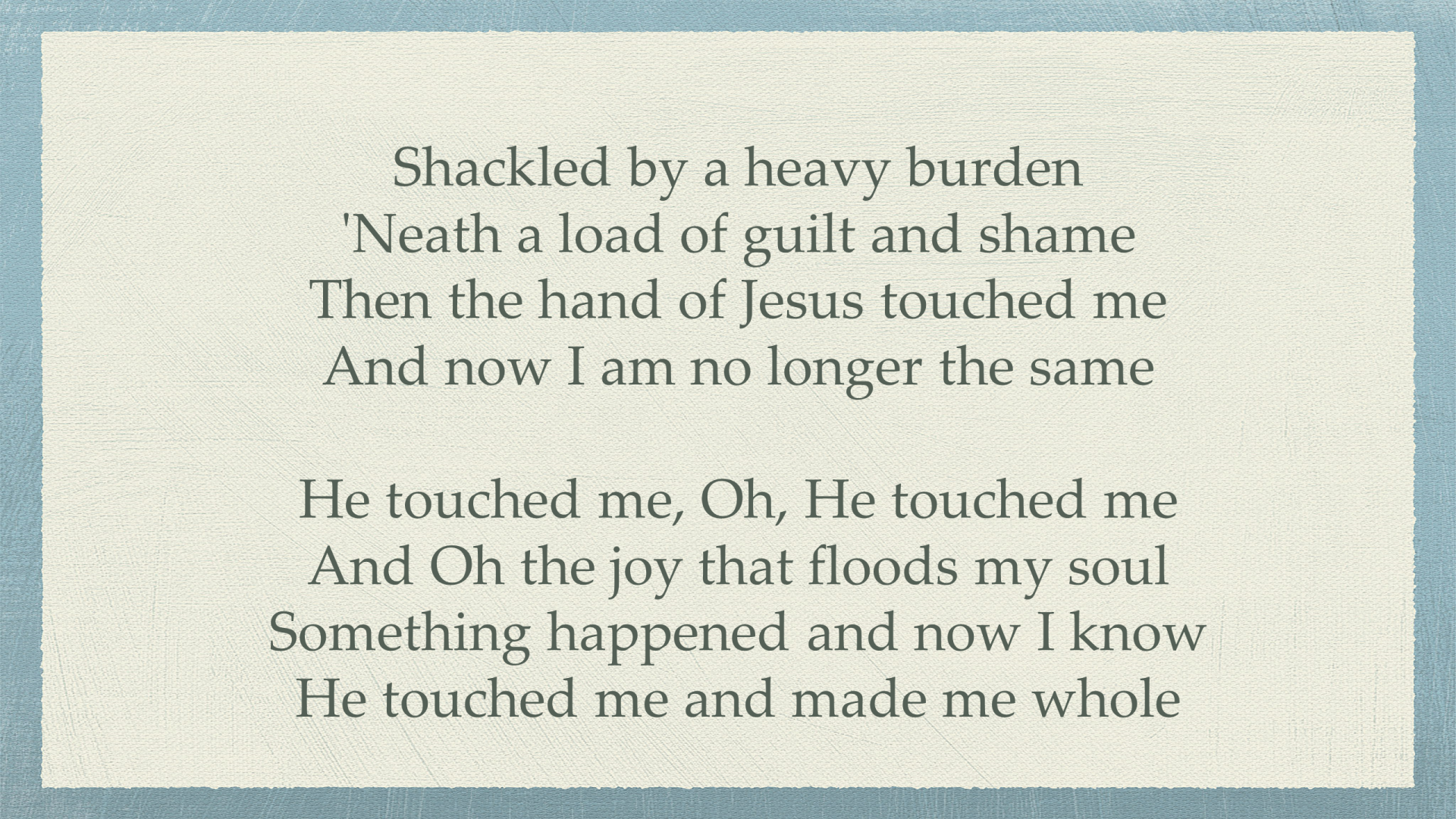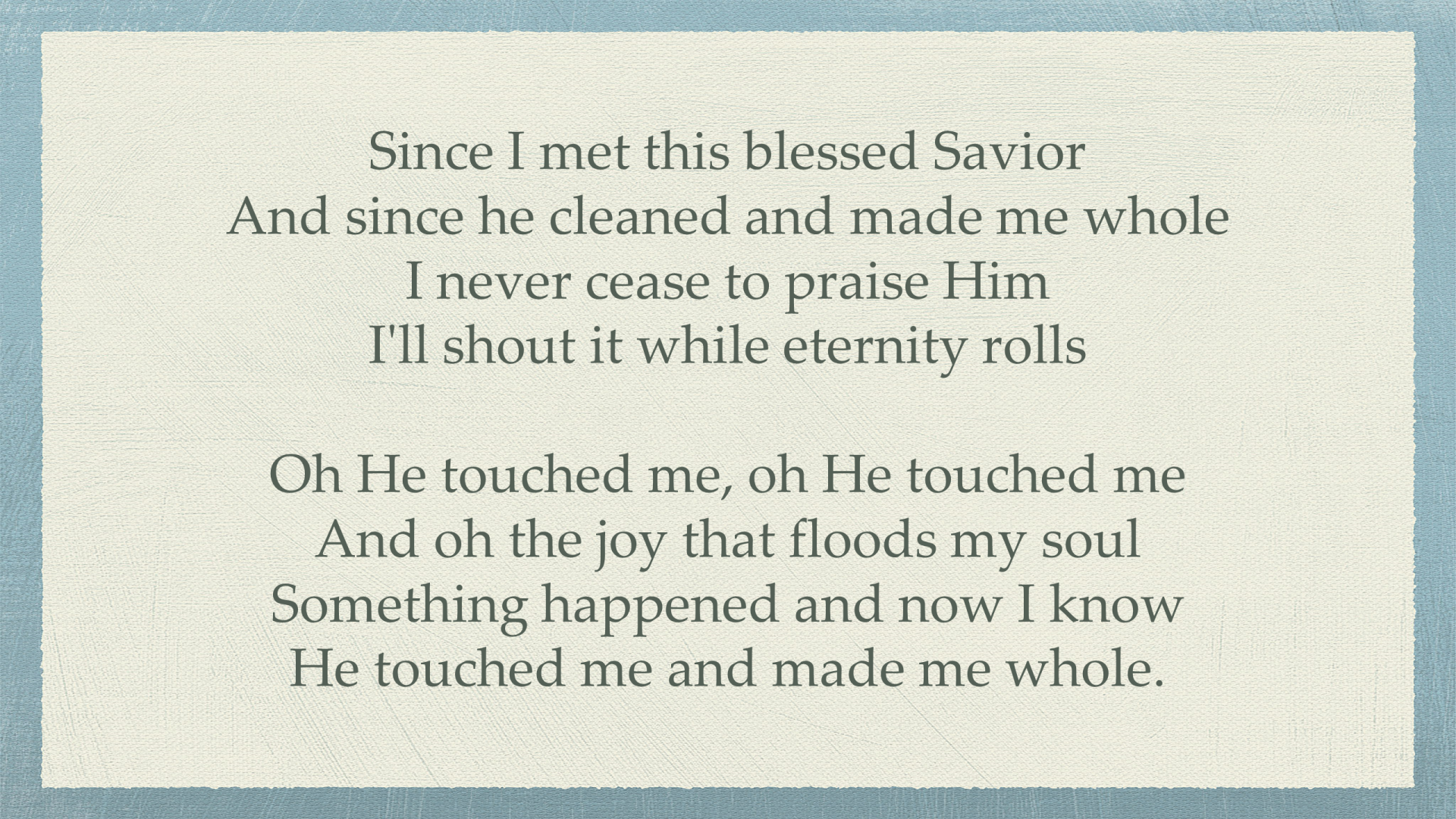If the YouTube video above is not available, here are two other ways to view:
Christ’s Life Gospels Pt3
JET-03
150315PM
A Jet Tour Through Christ’s Life in the Gospels – Part 3
God’s Word is full of many truths—each of which has countless applications in the lives of believers—but the supreme message God has delivered is that sinful people can be completely cleansed and securely kept in eternal fellowship with the holy God of the universe. That is the message of Mark 2:1-12.
Our text opens as Jesus had again returned to the picturesque fishing village of Capernaum, nestled on the northwestern shore of Galilee, approximately two miles  from where the Jordan enters the lake. This town lay on a gentle slope rising from one of the numerous shallow coves which lent a gracefully serpentine appearance to the shoreline. It was one of those places artists dream of discovering.
from where the Jordan enters the lake. This town lay on a gentle slope rising from one of the numerous shallow coves which lent a gracefully serpentine appearance to the shoreline. It was one of those places artists dream of discovering.
As soon as word spread that Jesus was back in town, the crowds gathered. They were so thick that four men had to get very creative to bring a friend to Jesus: While Jesus preached God’s Word, the service was interrupted by loud and persistent pounding on the roof, then violent shaking and bulging of the ceiling, followed by clouds of dust and falling mud chunks.
Then a ray of light pierced the darkened interior, and slowly a body on a bed being lowered by ropes from above could be seen. [Do you remember who lived in “the house” that was broken up? Simon and Andrew. It often costs something to serve Jesus.] In this way four men brought their friend to Jesus. What an incredible moment it was when Jesus looked into their pleading eyes and gave the greatest gift anyone has ever received!
As Mark 2:5 says, “When Jesus saw their faith, He said to the paralytic, ‘Son, your sins are forgiven you.’” Wow! What a blessing to see Jesus give your dear friend that incomprehensibly costly gift—forgiveness! Nothing could be better, greater, or more precious. We need some modern stretcher-bearers to bring their sin-paralyzed and palsied friends to Jesus. As you read and reflect on this story, ask yourself today: Who am I bringing to Jesus?Mark 2:1-12:
 And again He entered Capernaum after some days, and it was heard that He was in the house. Immediately many gathered together, so that there was no longer room to receive them, not even near the door. And He preached the word to them. Then they came to Him, bringing a paralytic who was carried by four men. And when they could not come near Him because of the crowd, they uncovered the roof where He was. So when they had broken through, they let down the bed on which the paralytic was lying. When Jesus saw their faith, He said to the paralytic, “Son, your sins are forgiven you.” And some of the scribes were sitting there and reasoning in their hearts, “Why does this Man speak blasphemies like this? Who can forgive sins but God alone?” But immediately, when Jesus perceived in His spirit that they reasoned thus within themselves, He said to them, “Why do you reason about these things in your hearts? Which is easier, to say to the paralytic, ‘Your sins are forgiven you,’ or to say, ‘Arise, take up your bed and walk?’ But that you may know that the Son of Man has power on earth to forgive sins”—He said to the paralytic, “I say to you, arise, take up your bed, and go to your house.” Immediately he arose, took up the bed, and went out in the presence of them all, so that all were amazed and glorified God, saying, “We never saw anything like this!”
And again He entered Capernaum after some days, and it was heard that He was in the house. Immediately many gathered together, so that there was no longer room to receive them, not even near the door. And He preached the word to them. Then they came to Him, bringing a paralytic who was carried by four men. And when they could not come near Him because of the crowd, they uncovered the roof where He was. So when they had broken through, they let down the bed on which the paralytic was lying. When Jesus saw their faith, He said to the paralytic, “Son, your sins are forgiven you.” And some of the scribes were sitting there and reasoning in their hearts, “Why does this Man speak blasphemies like this? Who can forgive sins but God alone?” But immediately, when Jesus perceived in His spirit that they reasoned thus within themselves, He said to them, “Why do you reason about these things in your hearts? Which is easier, to say to the paralytic, ‘Your sins are forgiven you,’ or to say, ‘Arise, take up your bed and walk?’ But that you may know that the Son of Man has power on earth to forgive sins”—He said to the paralytic, “I say to you, arise, take up your bed, and go to your house.” Immediately he arose, took up the bed, and went out in the presence of them all, so that all were amazed and glorified God, saying, “We never saw anything like this!”
The scribes and Pharisees had picked a good time to attend one of our Lord’s meetings. God’s power was present in a special way, and Jesus would heal a man with palsy. Just as leprosy, which we saw last time, illustrates the corruption and defilement of sin, so palsy in this passage is a picture of the paralysis that sin produces in a life. But Jesus would do more than heal the man; He would also forgive his sins and teach the crowd a lesson in forgiveness. There are five simple truths explicit in our text:
- The unchanged message of Jesus. He has been preaching the same message since chapter 1, verse14: Repent and turn toward the King and His Kingdom. No matter what the setting, no matter who the audience, no matter what the needs, Jesus preached God’s Word to all He encountered.
- The unabashed need of the paralytic. He was thrust before Jesus, the only One who could help him. Since no words were ever noted as being said, maybe even his voice was paralyzed; however, he was crying out for help by his very presence.
- The undaunted faith of the friends. At great risk, at great personal sacrifice they overcame all obstacles for the one desire they had, to get their friend to Jesus.
- The unmoved hearts of the Pharisees. They should have been telling everyone to come to Jesus. They should have stood and helped the stretcher down through the ceiling. They should have fallen on their faces in worship, filled with awe because they had been in the front row, had seen it all. The parlytic only had a paralyzed body; these religious men had paralyzed hearts.
- The unbridled worship of the crowds. God was the only focus of their reaction. They lifted their awe-filled hearts and glorified the Lord God Almighty.
After reading this passage each of us should ask himself this question: Am I pointing what is left of my life on earth toward bringing people to Jesus?
Who are you taking to heaven?
Some people will do anything to bring their friends to Jesus. That would be a summary of modern missions.
The people of Capernaum watched Jesus; they saw blind men receive their sight, lame men made to walk, lepers cleansed, the deaf recover hearing, dead persons raised to life again.
Capernaum is second only to Jerusalem, as one of the places most frequently mentioned in the Gospels. Jesus went there, on the borders of the territories of Zebulon and Naphtali, from Nazareth (Matthew 4:13) and there found his first disciples, Peter, Andrew, and the two sons of Zebedee (Matthew 4:18–22). He taught there in the synagogue (John 6:24–59) and directed Peter to find a coin in the mouth of a fish with which to pay the tax-gatherers (Matthew 17:24–7). He also lodged there in Peter’s house, healing the sick and teaching (Mark 1:29–34; 2:1–12; Luke 4:38–44). Nevertheless, as Jesus left Capernaum, he condemned it—along with other cities—for its spiritual indifference. They could take Him or leave Him; they were “ho hum” about Jesus. They had not heeded His calls to repentance (Matthew 11:23; Luke 10:15).
What did those who lived in the town of Jesus fail to do?
They failed to respond to God in their midst. They were not antagonistic; they were merely indifferent. They did not deny Him; they merely quietly ignored Him. They did not rebel against Him; they merely had other things that were more important that paying attention to God.
What did the town of Jesus, Capernaum ignore?
So many changed lives all around them!
What happens to Capernaum?
Because of their indifference, they would not be exalted to heaven as they thought they deserved but would rather descend to Hades. Look at Matthew 11:20, 23-24:
Then [Jesus] began to rebuke the cities in which most of His mighty works had been done, because they did not repent: “And you, Capernaum, who are exalted to heaven, will be brought down to Hades: for if the mighty works which were done in you had been done in Sodom, it would have remained until this day. But I say to you that it shall be more tolerable for the land of Sodom in the day of judgment than for you.”
Slides
Check Out All The Sermons In The Series
You can find all the sermons and short clips from this series, A Jet Tour Through Christ’s Life in Gospel here.
Looking To Study The Bible Like Dr. Barnett?
Dr. Barnett has curated an Amazon page with a large collection of resources he uses in his study of God’s Word. You can check it out here.


